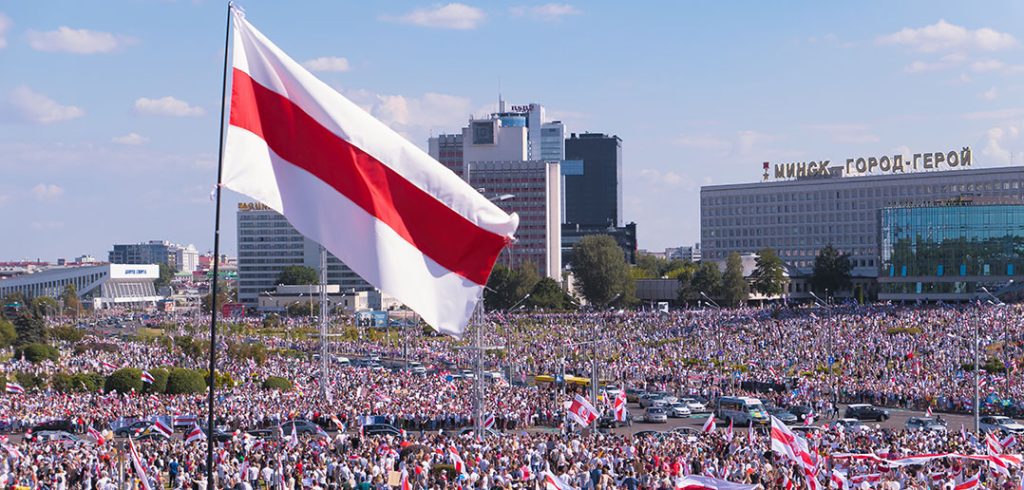In 2020, Lukashenka was elected to a sixth term in an election that was marred by widespread electoral fraud. Protesters took to the streets, and an estimated 6,000 were jailed and tortured by the government. Thousands were forced to flee the country.
In June, Nikolayenko traveled to Poland and Lithuania for three months to interview natives of Belarus, a country of 9.3 million people bordering Russia and Ukraine.
“People in the United States sometimes forget how elections are not something that you can take for granted,” said Nikolayenko, a professor of political science whose research focuses on social movements and comparative democratization in Eastern Europe and the former Soviet Union.
“They’re not something that just falls from the sky. They’re something that people fight for and, in some cases, lose their lives.”

Nikolayenko had previously written about the “staggering level of mobilization” that materialized in the aftermath of the 2020 election in Belarus, despite the extreme danger participants faced, and focused on the role of emotions in generating mass mobilization.
A grant from the U.S. Department of State and support from the American Councils for International Education allowed her to travel to the region, and the European Humanities University in Lithuania and the Institute of Political Studies at the Polish Academy of Sciences provided administrative support.
Nikolayenko conducted in-depth interviews with 23 industrial workers and other members of trade unions. Past protests against the government had mostly attracted university students and white-collar workers, but in 2020, blue-collar workers joined in large numbers, and as a result, many of those same workers were forced to flee the country.
She said most of the political movements she’s studied over the years were carefully planned years before elections, but this one was more spontaneous and was driven by feelings of injustice.
“I was interested in understanding why some industrial workers joined while others did not and why the level of labor mobilization was higher at some state enterprises than others,” she said.
Nikolayenko will publish her findings in an academic journal in the future, but in the meantime, she’s sharing the lessons in Youth and Politics, a course she’s teaching undergraduates this semester.
Class discussions range from the ethics of interviewing to the role of the students’ generation in preserving democracy. The latter is especially important now, given the erosion of democratic norms in Europe and the United States, she said.
“Given what is happening in the United States right now, with the level of polarization and populism and everything else, it’s important to stress the idea that the quality of democracy is something that cannot be taken for granted,” Nikolayenko said.
“People need to take a very active stance and remain engaged in politics, and the people of Belarus are trying to do it in very precarious conditions.”

